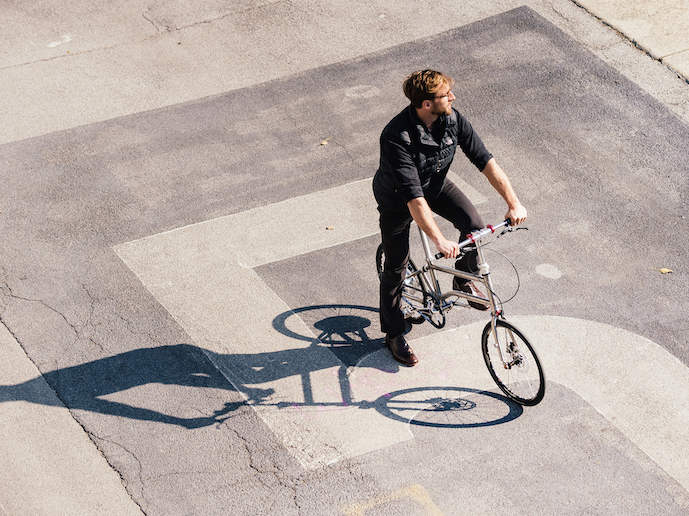Breaking down the barriers to e-biking
The EU project VELLO CMC is helping Austrian start-up VELLO to overcome the barriers to a bigger take-up in European cities by funding a feasibility study. In the process, it aims to popularise a more sustainable form of urban mobility. “People are looking for a personal mobility solution which is light, can be taken anywhere, folds up easily and doesn’t pollute,” says VELLO co-founder Valerie Wolff. The VELLO Bike+ is very light, weighing in at just under 12 kg. It can be folded up in two quick steps thanks to VELLO’s own folding mechanism design, including an innovative magnetic latch and vertical front fold, now patented. This means a full-sized bicycle can be quickly folded down to a size four times smaller, suitable for stowing on a train or under the desk at work, thereby keeping it safe from theft. It also offers a solution to the problem of getting stuck somewhere with a flat battery.
Battery charges itself
The back wheel of a VELLO Bike+ is fitted with a hub which contains a motor, batteries, electronics and sensors in a single unit weighing around 3 kg. The system acts like a big dynamo by transforming spare kinetic energy into electric energy and recharging the batteries while going downhill, braking or pedalling. This cuts out the need for recharging and gives the device an infinite range. The hub was developed by Italian start-up Zehus with help from the EU-funded BITRIDE BIKE SHARING project from 2017 to 2018. VELLO has used its EU support to explore the market for a commercial roll-out across Europe and for investigating new business models, including new kinds of bike-sharing schemes. During September 2019, it conducted in-depth studies with big and small Austrian companies, including rail and cruise ship operators, car companies, hotels, restaurants and bicycle rental businesses. The study flagged potential problems with vandalism and high operating costs. In the end it became clear that making bike-sharing schemes of this nature viable would call for much higher volumes of production and external financing, making it incompatible with the current business model. “We would need a really big investor and generate a huge volume of sales,” says Wolff. “For the time being, we are concentrating on selling directly and through our retail partners.”
Promising opportunities
Doing the study had other benefits for VELLO. In November 2019, the Austrian parliament approved a subsidised scheme for leasing bicycles, which allows employers to extend the privileges and tax benefits of company cars to people who want to buy bicycles for commuting. Take-up has grown fast since it was launched in Germany 2 years ago, and Wolff believes the Austrian version could substantially increase demand for the VELLO Bike+ by offering people big savings on the retail price. “In June [2019] when we started the project, we were not thinking about corporations, but the timing of our interviews was really good as once this measure was approved, we already had established good relations with these big companies,” said Wolff, “so we know them through the study and they know about the benefits for employees.”
Keywords
VELLO CMC, e-bike, recharging, battery, folding mechanism, urban mobility, bike-sharing







